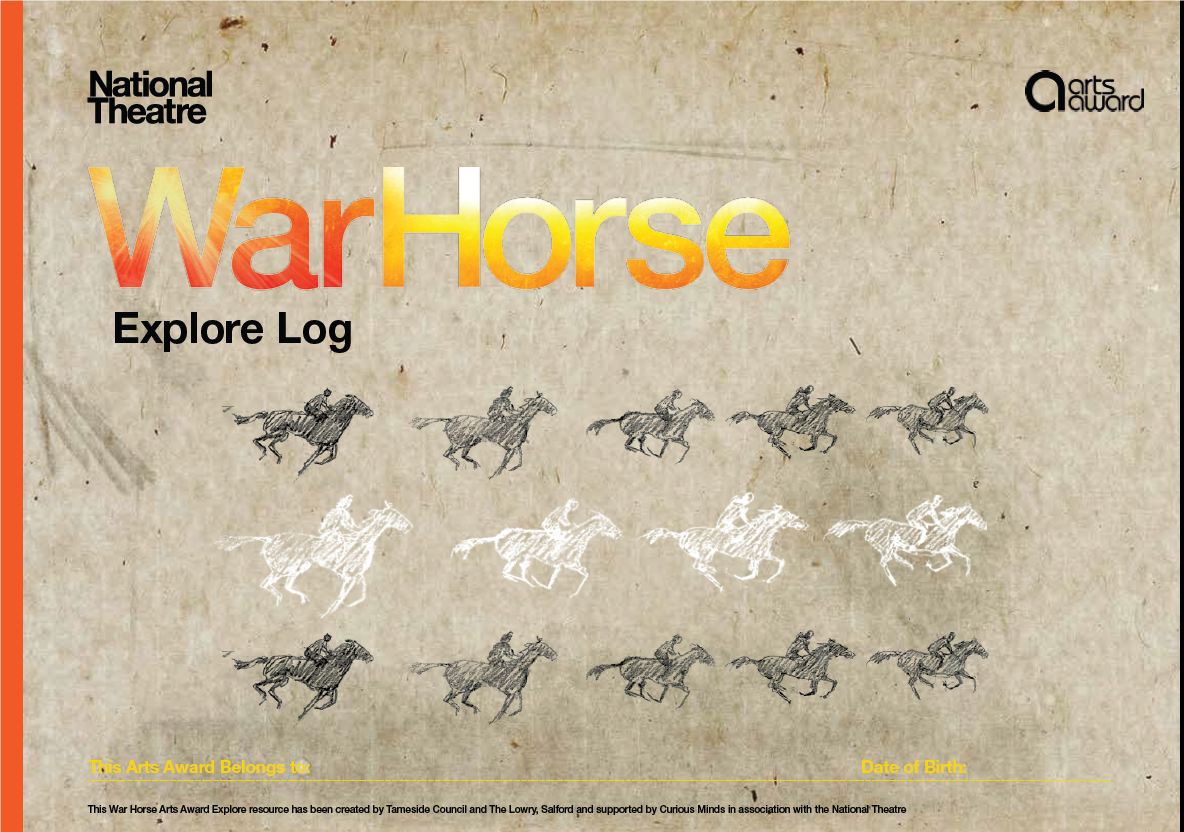
Arts accreditation options for schools

BY: Toby Davies
05 Feb 2024
Arts-based accreditations can provide a host of benefits to children and young people, and play an important role in securing recognition for your arts offer in school. In this post, we’ll look at the options open to schools seeking accreditation for their arts activities and how the various programmes, awards and qualifications can support your school’s priorities.
What are the benefits of arts accreditation?
As well as raising the profile of the arts in school, there are numerous positives to accrediting your arts offer:
- Improving student and staff engagement (and even attendance)
- Boosting confidence and supporting mental health and well-being
- Rewarding student and staff efforts (with a recognised qualification, in some cases)
- Developing students’ knowledge and skills in the arts
- Broadening students’ horizons, raising aspirations and increasing cultural capital.
What arts accreditation options are available for schools?
Many schools interested in raising the profile of the creative arts seek accreditation for their whole- school arts provision. Other options available supplement the curriculum and enable learners to work towards and achieve awards or qualifications.Popular accreditations open to schools that connect to the arts include:
- ASDAN
- Arts Award
- Artsmark
- The Duke of Edinburgh’s Award
- Graded music or drama exams
- BTEC Tech Awards Performing Arts
Each option includes various benefits, so you’ll need to consider various factors - including your department and whole-school priorities, and the outcome you’re hoping to achieve for students - when deciding which would work best for your school.
How to choose the accreditation that best suits your learners
When selecting an accreditation, schools may want to consider:
- The focus of your School Improvement Plan
- The interests, needs and learning styles of the young people in the setting
- How the accreditation will be delivered or managed
- Cost of the accreditation and how it will be funded
- The level of support and resources that are available for staff and students, including any training
- What you’d like to achieve, and how impact and success will be measured.
To help you to make a choice, we’ve looked at some outcomes that many schools share and highlighted the accreditation options that best fit these aspirations.
Looking to develop essential life skills?
If you’re looking to develop transferable skills that will support students to progress into further study and work, ASDAN’s range of programmes and qualifications, or Arts Award, could work well for you.
ASDAN is likely to suit schools who would like a broad topic focus as the programmes cover a range of wider topic areas – while Arts Award is specifically focused on the arts.
Both ASDAN and Arts Award qualifications nurture life skills such as communication, social and employability skills. Additionally, they both offer the benefit of being nationally recognised qualifications that sit on the Regulated Qualifications Framework (variety of levels available).
Some schools offer ASDAN’s Extended Project Qualification alongside Gold Arts Award in the Sixth Form, allowing students to choose (both are Level 3 qualifications with UCAS points attached).
Seeking to reward individual achievement in the arts?
It may be that your school is looking to extend the range of qualifications available to work towards through arts subjects. For example, a school with limited arts GCSE options may wish to broaden the creative exam opportunities available to Key Stage 4 students. BTEC Tech Awards in Performing Arts is an example of a Level 1/2 qualification that is used by schools in this way, as it complements the learning in GCSE programmes.
Other schools may be looking for a suite of arts qualifications that can be used across all Key Stages. For this, many look to music and performing arts graded exams that are provided by a range of awarding organisations, including Trinity College London and Rockschool.
For a broader focus across the arts, Arts Award is a good option as the qualifications nurture interests in any art form; from music, dance and acting to photography, textiles and creative writing. Additionally, as a portfolio-based qualification, the lack of exam increases the attractiveness of Arts Award to many students.
Many graded exams, as well as Arts Award, offer the added benefit of valuable UCAS points attached to the higher levels.
Exploring wider opportunities for students?
Inviting students to take part in new and exciting activities expands their horizons and increases cultural capital.
Many schools seeking these outcomes look to The Duke of Edinburgh’s Award which encourages young people to take on new challenges, acquire new skills and give something back to their community. And if you’re looking for an arts-specific accreditation that will support young people’s leadership skills and their journeys into careers, Arts Award is another good option.
Schools seeking more opportunities for students with SEND will want to consider inclusive accreditations that are accessible to all students, regardless of their abilities, such as Arts Award, which can be tailored to individual’s personal interests and strengths; The Duke of Edinburgh's Award is achievable by any young person who takes up its challenge, regardless of ability, gender, background or location; or ASDAN programmes and qualifications, some of which are specifically designed for learners with SEND.
Running more than one arts accreditation
It’s important to note that many arts accreditations complement one another. For example, a school could consider how Arts Award aligns with The Duke of Edinburgh’s Award through Arts Award’s status as an Approved Activity Partner for the Award.
'Students can use Arts Award to support their Duke of Edinburgh because it’s affiliated with the DofE scheme. So, some of our students choose to do Arts Award as part of their DofE.'
Liz Kelly, Director of Learning (Visual Arts)/Arts Coordinator at Sandringham School
'Arts Award and Artsmark go hand-in-hand. Arts Award really does mirror many of the Artsmark principles that we’re striving towards.'
Liz Kelly, Director of Learning (Visual Arts)/Arts Coordinator at Sandringham School
With a full range of accreditations to choose from, there are ample opportunities to raise the profile of the arts in your school, help your students to develop a lifelong love of the arts and essential life skills, and celebrate their creative achievements.
Would you like to find out more about Arts Award as an accreditation to use in your school? Check out our new, freely available Arts Award Insight Pack – Secondary full of useful digital resources including a handy overview of the Bronze and Silver Awards, and helpful guides to support conversations with parents and senior leaders in your school.
Related posts
BY: Alan Lynch
BY: Alan Lynch
BY: Guest Writer





Comments & Replies